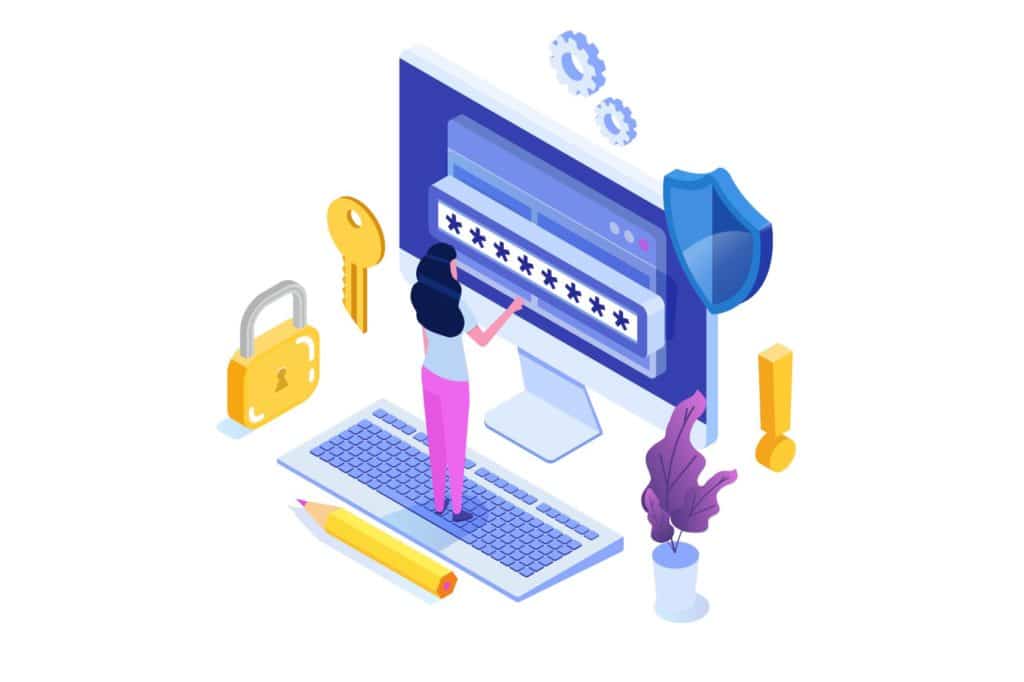
An increasing number of child care centers across the country are using software to run their businesses – and for good reason. It saves a lot of time, money and headaches, and in today’s environment, online-based solutions can help keep staff, children and families safe (i.e. contactless solutions).
But as with anything you do online, it’s important to make sure you take the proper precautions to ensure you don’t fall victim to bad actors on the internet. This is particularly important when you consider all the important family, staff and business data you maintain.
One of the easiest ways to protect yourself is by using strong passwords. In this handy guide, we provide tips and practical strategies your child care business can use to safeguard your organization so you can focus on what matters most – the children in your care.
Formulating Safe Passwords
If you’re still using passwords like “Password123” or your birthday or the name of your first pet, chances are, hackers can figure it out. That’s why it’s important to use long passwords that not only use letters, but also numbers and special characters:
- Use at least 14 characters, consisting of uppercase and lowercase letters, numbers and special characters or symbols
- Avoid using personal or family data (name, surname, date of birth)
- Avoid using personal or corporate phone numbers
- Avoid sequences of letters or numbers on your keyboard (i.e. qwerty, asdfg or 12345)
Example of a Strong Password
Long passwords help reduce the chances of successful cyberattacks. You can create one by using a phrase that is easy to remember.
For example: “I love helping grow the young minds of the children at my center in 2020.”
Sample Password: Ilhgtymotcamci2020
Make it stronger: Swap out letters for numbers and symbols and use both uppercase and lowercase letters.
Sample Password: 1lhgtyM0tC@mC12020
Tips for Keeping Your Passwords and Credentials Safe
Once you’ve created strong passwords for all of your accounts (i.e. work, email, social media and online banking) you’ll want to make sure you keep your passwords and credentials safe. Here’s how:
- Enable two-factor authentication on all of these. This is when you combine your password with something you own, like a one-time password app on your phone.
- Do not write down credentials in notebooks, tickets, virtual notes or any other means of identification (electronic or physical). Instead, make use of a password manager for your personal accounts. That way you only need to remember one strong master password, and the password manager takes care of all your other sites.
- Avoid using the same password on all your accounts. Sites get hacked frequently, resulting in your details and passwords put up for sale.
- Never share your passwords with others.
- Before entering your login and password on a website, check the web address of the page you’re visiting. The bad guys can copy the layout of the original page and change the web address by just a few characters. Their goal? They’re hoping you to enter in personal information like passwords, social security numbers and other important data that they can capture and sell.
- Watch out for emails that lead to web pages that ask for your credentials and password. When in doubt, do not divulge information.
- Never use your business credentials and passwords to create accounts on social networks or virtual stores.
- Avoid storing credentials and passwords automatically in the browser.
- Change your password periodically.
You don’t have to be a cybersecurity expert to adequately protect your business from bad actors on the internet. By following the simple guidelines we’ve outlined above, you can have confidence that you’ve significantly reduced the chances your center will fall victim to a cyberattack.
Tackle Your Business Challenges and Keep Your Data Secure with Procare
Procare is committed to ensuring we have the security measures in place to keep your information safe.
Ready to address your biggest child care business challenges while having the confidence in the security of your data?
Robust Password Policies. Procare offers vigorous password configuration policies, allowing customers to select complex and lengthy passwords.
Compliance and Privacy. Procare regularly performs privacy risk management to ensure applicability to GDPR, CCPA, PCI, SOC2, FERPA and other State and Federal laws and regulations. Procare is dedicated to maintaining and continuously improving its privacy information management and data protection programs.
Role-Based Access and Session Time-out. Procare supports role-based access by providing the least privilege model. Users are given only the access needed to perform their job responsibilities. There is a complete audit trail for changes to each transaction by the user, including login details and a timestamp. Accounts are also locked out after several unsuccessful attempts or prolonged idle time.
Encryption Protocols. Data in transit and user credentials are encrypted with industry standard protocols and cipher suite, HTTPS and latest secure version of TLS. Procare also provides encryption APIs.




